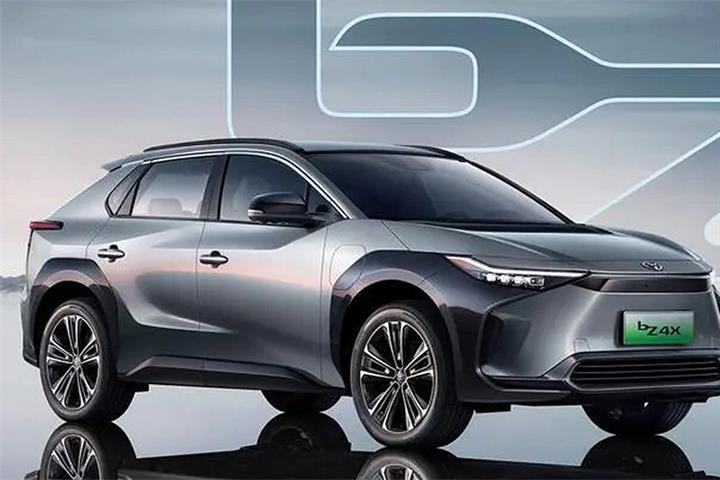 Chinese Consumers' High Bar for Smart EVs Makes It Hard for Foreign Brands to Sell Well Despite Low Prices
Chinese Consumers' High Bar for Smart EVs Makes It Hard for Foreign Brands to Sell Well Despite Low Prices(Yicai Global) April 7 -- Smart electric cars made by overseas auto manufacturers are failing to take off in China, despite cheaper prices, as their level of intelligentization is often no match for Chinese brands.
Chinese and European clients have different requirements regarding EVs’ smart functions, an industry insider told Yicai Global. Chinese consumers put a lot of importance on EVs’ intelligent capabilities, and so many foreign carmakers may find it hard to penetrate the China market.
Toyota’s bZ4X pure electric sports utility vehicle, for instance, has a starting price of CNY199,800 (USD29,000) in China, while in Norway it retails for 35 percent more at NOK464,100 (USD44,326). But, while sales in China remain tepid, in Norway it is the second best-selling new energy vehicle after Tesla’s Model Y, shifting 1,007 units in March, according to EV data tracker eu-evs.
“We are selling the top configuration bZ4X at our store for CNY249,900, and this price can be lowered to CNY180,000,” a salesman at a Toyota dealership in Shanghai told Yicai Global. If buyers are doctors, teachers or from partner companies, they can have an additional special discount of CNY10,000 (USD1,453).
In the same way, Chinese EVs are not selling well in Europe. BYD only sold 29 units of its Han model in March and 27 of the ATTO 3 while Xpeng shifted just 10 P7s, according to the eu-evs report.
“European customers are not that interested in intelligentization,” said the head of European business at a Chinese carmaker. “Battery technology and smart connection are not the most needed functions in Europe. Rather, they attach more importance to the conventional performance of a vehicle, and this is where the gap between Chinese and European companies lies.”
But Chinese EVs are outselling foreign brands in many emerging markets. For example, four Chinese brands were among the five best-selling cars in Thailand in March, and BYD has scored first place for three consecutive months.
Consumers in Southeast Asia are similar to Chinese ones as they like a high level of intelligentization in their cars, Li Hui, vice president of Aiways Automobiles told Yicai Global. Japanese brands, which used to dominate the car market in the region, are being left behind by Chinese automakers due to their slow response in this area.
Chinese carmakers should focus on countries where there is not a strong auto industry, rather than those markets which already have well established vehicle manufacturers, such as the US, Germany and Japan, said BYD Chair Wang Chuanfu.
Editors: Tang Shihua, Kim Taylor